Progressive Discipline Training | Legal Employee Misconduct Management Guide
Struggling with employee behaviour problems? You’re not alone — and there’s a better way to handle them. Our Progressive Discipline Training teaches you how to manage misconduct effectively and legally. From verbal warnings to final steps, we guide you through the process with clarity and confidence.
What Is Progressive Discipline?
Progressive discipline is a structured approach to addressing employee misconduct or performance issues through a series of escalating actions. The goal is to correct behaviour, not punish. It typically starts with a verbal warning, followed by written warnings, suspension, and, if necessary, termination. Each step gives the employee a clear opportunity to improve while documenting the employer’s efforts to manage the issue fairly and legally.
Legal Considerations and Compliance
Employers must ensure that their progressive discipline process aligns with local labour laws and workplace regulations. This includes maintaining accurate documentation, applying policies consistently, and respecting employee rights at every stage. Missteps — such as skipping steps, showing bias, or failing to document — can expose an organisation to unfair dismissal claims or legal disputes. Our training emphasises compliance, helping you avoid costly mistakes and build a defensible, transparent process.
Who Needs Progressive Discipline Training?
Progressive discipline training is essential for managers, supervisors, HR professionals, and anyone responsible for overseeing employee performance or behaviour. Whether you’re part of a small business or a large organisation, this training helps ensure you handle workplace issues consistently, fairly, and legally. It’s especially valuable for new leaders, teams navigating sensitive misconduct cases, or companies developing or updating their discipline policies.
Overview
Learn how to handle workplace discipline fairly, legally, and professionally. This course is designed to help managers, supervisors, HR professionals, and team leaders understand how to implement disciplinary procedures that are consistent, respectful, and aligned with labour laws and organisational policies.
Disciplinary action, when done correctly, helps improve performance, address misconduct, and protect workplace culture. This course provides a practical framework for managing misconduct or poor performance while ensuring fair treatment and due process.
Topics covered include:
Understanding the purpose of disciplinary procedures
The principles of fairness, consistency, and confidentiality
Legal compliance and employee rights
Progressive discipline and appropriate responses
Investigating misconduct and gathering evidence
Writing warnings and disciplinary letters
Holding disciplinary hearings and appeals
Record-keeping and follow-up actions
You will learn how to:
Apply fair disciplinary procedures in the workplace
Conduct investigations and interviews professionally
Issue warnings and manage documentation correctly
Handle disciplinary hearings confidently
Balance accountability with empathy and fairness.
This course is essential for creating a workplace culture that values fairness, professionalism, and clear communication. It helps you deal with sensitive issues effectively while minimising risk and promoting employee growth.
Description
Learning about effective performance and discipline management is crucial for employers and managers as it contributes to the workforce’s overall success, productivity, and well-being. Effective performance and discipline management is crucial for creating a harmonious, productive, and engaged workforce. These management practices help align individual and team performance with organisational goals, address issues promptly and fairly, and foster a culture of continuous improvement and accountability.
- Introduction
- The basis of the relationship
- Duties of an employee
- Duties of employers
- Discipline: an employer’s duty
- Dismissal – the ultimate penalty
- Substantive fairness
- Procedural aspects
- Types of rules
- Disciplinary codes and procedures
- Particular offences
- Introduction
- Minor offences – procedures
- Introduction
- The role of an initiator
- Pre-hearing preparation
- Investigating the facts of the incident
- Determining the disciplinary route
- Rules of evidence
- Admissible evidence
- Inadmissible evidence
- Other examples of inadmissible evidence
- Primary vs supporting evidence Formulating charges
- Arranging a chairperson
- The issue of representation
- Preparing witnesses
- Onus of proof
- The disciplinary hearing procedure
- Mitigating and aggravating statements
- Appeal hearing
- Role of initiator in appeals
- Working on an appeal procedure
- Roleplay
- Differentiating between probation and employees that perform poorly
- Substantive and procedural fairness
- Informal and formal process
- A practical guide for dealing with poor work performance
- A practical guide for dealing with poor work performance
- Step 1: Fact-gathering process
- Step 2: Performance investigation
- Step 3: Performance consultation
- Step 4: Progress meetings
- Step 5: Final performance review
- Dealing with grievances
- The grievance procedure
- Stages in the grievance procedure
- Guidelines for holding a grievance interview
- Schedule 8 Code of Good Practice: Dismissal
- Disciplinary Hearing Checklist
- DISCIPLINARY REPORT
- Non-accredited: Short course only
- Duration: 1h 30m
- Delivery: Classroom/Online/Blended
- Access Period: 12 Months


